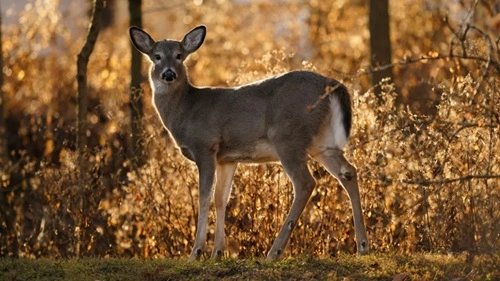Yes, feeding deer is illegal in most circumstances in Pennsylvania, especially in areas where Chronic Wasting Disease (CWD) has been detected. The Pennsylvania Game Commission (PGC) enforces strict regulations to prevent the spread of disease, ensure public safety, and maintain natural wildlife behavior.
The Legal Framework for Feeding Deer in Pennsylvania
Feeding wildlife, including deer, is a contentious issue due to its potential to disrupt ecosystems and endanger both animals and humans. Pennsylvania’s laws on feeding deer are rooted in concerns over disease transmission, property damage, and unnatural animal behavior.
1. Chronic Wasting Disease (CWD) and Feeding Restrictions
a) Chronic Wasting Disease Zones
CWD is a fatal neurological disease that affects deer, elk, and moose. To combat its spread, Pennsylvania has designated Disease Management Areas (DMAs) where feeding deer is strictly prohibited.
- Feeding deer in DMAs is illegal under 58 Pa. Code § 137.34, which aims to limit deer congregation, a primary factor in disease transmission.
- As of 2024, there are multiple DMAs across Pennsylvania, including areas in Adams, Blair, Bedford, and surrounding counties.
b) Implications of Feeding Deer in DMAs
Violators can face fines and penalties for feeding deer in these restricted areas, even if they claim ignorance of the law. The PGC actively monitors and enforces these regulations.
2. Statewide Feeding Prohibitions
Even outside DMAs, feeding deer is discouraged due to its potential negative effects:
1. Increased Disease Risk: Congregations at feeding sites increase the likelihood of disease transmission.
2. Habituation to Humans: Feeding can cause deer to lose their natural fear of humans, leading to property damage and safety risks.
3. Unnatural Diets: Human food or improper feed can harm deer health.
Although the law primarily targets DMAs, the PGC advises against feeding deer statewide to avoid ecological imbalances and health risks.
3. Exceptions to the Rule
There are limited exceptions where feeding deer may be permitted:
1. Agricultural Practices: Farmers and agricultural operators may inadvertently attract deer while growing crops or engaging in livestock feeding. This is not considered illegal.
2. Hunting Baiting Rules: While hunting over bait is generally prohibited, some exceptions exist for specific areas or under regulated circumstances. Hunters should check local regulations to ensure compliance.
4. Penalties for Feeding Deer
The penalties for illegally feeding deer in Pennsylvania can include:
- Fines: Violators can face fines ranging from $100 to $300 for feeding deer in DMAs or violating state regulations.
- Increased Scrutiny: Repeat offenses may lead to higher fines, additional penalties, or targeted enforcement.
- Wildlife Damage: If feeding contributes to property damage or accidents, civil liability may apply.
Recent Legal Updates (2023-2024)
1. Expansion of Disease Management Areas
The Pennsylvania Game Commission expanded DMAs in 2023 due to new detections of CWD. The total number of restricted zones and their geographic coverage increased, affecting more counties and landowners.
2. Public Education Campaigns
The PGC launched initiatives to educate residents about the dangers of feeding wildlife, emphasizing disease prevention and the legal consequences of noncompliance.
3. Increased Surveillance
Surveillance programs have been enhanced to monitor feeding activity and track CWD spread, with more patrols and enforcement in rural and suburban areas.
FAQs About Feeding Deer in Pennsylvania
Q1. Is it illegal to feed deer everywhere in Pennsylvania?
Ans: No, feeding deer is not outright illegal statewide, but it is prohibited in Disease Management Areas (DMAs) and strongly discouraged elsewhere.
Q2. What happens if I feed deer in a DMA?
Ans: Feeding deer in a DMA is a violation of Pennsylvania Game Commission regulations and can result in fines ranging from $100 to $300.
Q3. Can I put out food for deer in my backyard?
Ans: If you live outside a DMA, there are no direct legal prohibitions, but the PGC advises against it due to the risks of habituation and disease transmission.
Q4. Are there exceptions for feeding deer?
Ans: Yes, exceptions include unintentional feeding through agricultural activities and specific allowances for baiting during hunting in regulated areas.
Q5. How can I help deer without feeding them?
Ans: The best way to help deer is by preserving their natural habitats, planting native vegetation, and supporting conservation efforts led by organizations like the PGC.

